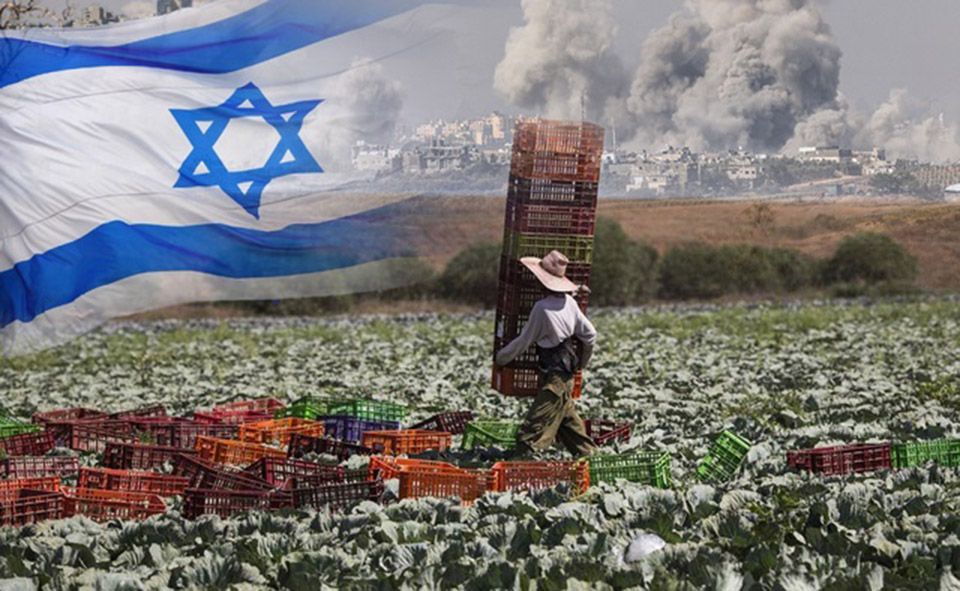
Israeli farms, heavily reliant on migrant workers especially those from Thailand, are facing a severe labor shortage due to the ongoing conflict. Approximately 30,000 Thai workers, who form a significant part of Israel’s agricultural workforce, have seen a reduction of about 8,000 since October 7. This has left many farmers struggling to maintain operations.
The conflict has led to most migrant workers being banned from Israel and many Thai workers returning to their home country out of fear, exacerbating the labor crisis on farms. These developments have significantly impacted the agricultural sector, a key component of Israel’s national identity and economy.
According to Yuval Lipkin, deputy executive director of the Ministry of Agriculture, Israeli agriculture, known for its contribution to the nation’s self-image and economic policies, is now in its biggest crisis since the establishment of the state in 1948.
The labor crisis is occurring at a critical time for many growers, as harvest season approaches. Volunteers, including students and professionals from various fields, have been stepping in to assist with farming tasks. However, the sustainability of this volunteer effort remains a concern, especially as volunteers may need to return to their regular jobs. (NNT)






